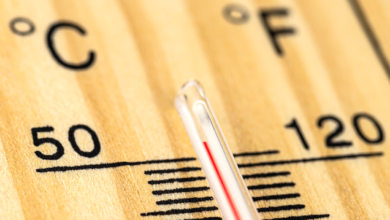Chronic pollution exposure damages the immune system

Studied the relationship between Chronic pollution exposure and the weakening of the immune system
(sustainabilityenvironment.com) – A Columbia University Irving Medical Center study showed that prolonged and chronic pollution exposure weakens the immune system, making lung cells more vulnerable and our lungs exposed to respiratory disease. This is why – explains the team that worked on the research – older people are more fragile, more vulnerable to influenza and respiratory diseases like Covid 19.
“We do not yet know the full impact that pollution has on the immune system of the lung – explained Donna Farber, Head of the survey – but pollution undoubtedly plays a role in creating more dangerous respiratory infections in the elderly and is another reason to continue work in improving air quality“.
The immune system of those who have long been exposed to pollution is compromised
The study examined the immune cells of the lymph nodes of deceased donors. The investigation, conducted over the past decade, found that the lung lymph node tissue of non-smokers was under a different microscope than that of other parts of the body, which led the team to collect multiple tissue samples from different types of donors. Eventually, cells from 84 deceased donors were placed under examination, in an age range between 11 and 93 years to establish a model, which revealed that the lighter color corresponded to younger donors. The older cells were blackened and, after further examination, it was discovered that the color was given by particles of air pollution.
Scientists have established that air pollution damages the lymph nodes, altering the immune system’s ability to respond when the lungs are attacked.
The first evidence shown is that pulmonary lymph node tissue was blacker in older donors, while that of other parts of the body such as the intestine did not return this alteration. According to Farber, air pollution particles are responsible for weakening the immune system because they attack crucial cells called “macrophages” They represent the outpost of the pulmonary immune system because they destroy bacteria and expel dead cells.
“When we looked at people’s lymph nodes, we were struck by how many of the nodes in the lung looked black, while those in the gastrointestinal tract and other areas of the body were the typical beige color,” said the researcher,”These immune cells are simply suffocated by particulates and cannot perform essential functions that help us defend ourselves against pathogens”.
Environmental policies must take into account not only climate change but the relationship between air pollution and the immune system
The results show that air pollution particles accumulate in the pulmonary nodes responsible for the production of macrophages, compromising their functioning. The more we are exposed, the more our ability to fight pathogens decreases and we get sick from respiratory infections.
The study concluded that “The specific effects of pollutants on lung inflammation and asthma in certain individuals or within certain geographical regions have been documented,” as well as effects on neurodegenerative diseases and neuroinflammation. At this point the researchers think that the evidence represents a warning to policymakers: “We propose that policies to limit carbon emissions not only improve the global climate, but also preserve our immune systems and their ability to protect against current and emerging pathogens and to maintain the health and integrity of tissues”.





